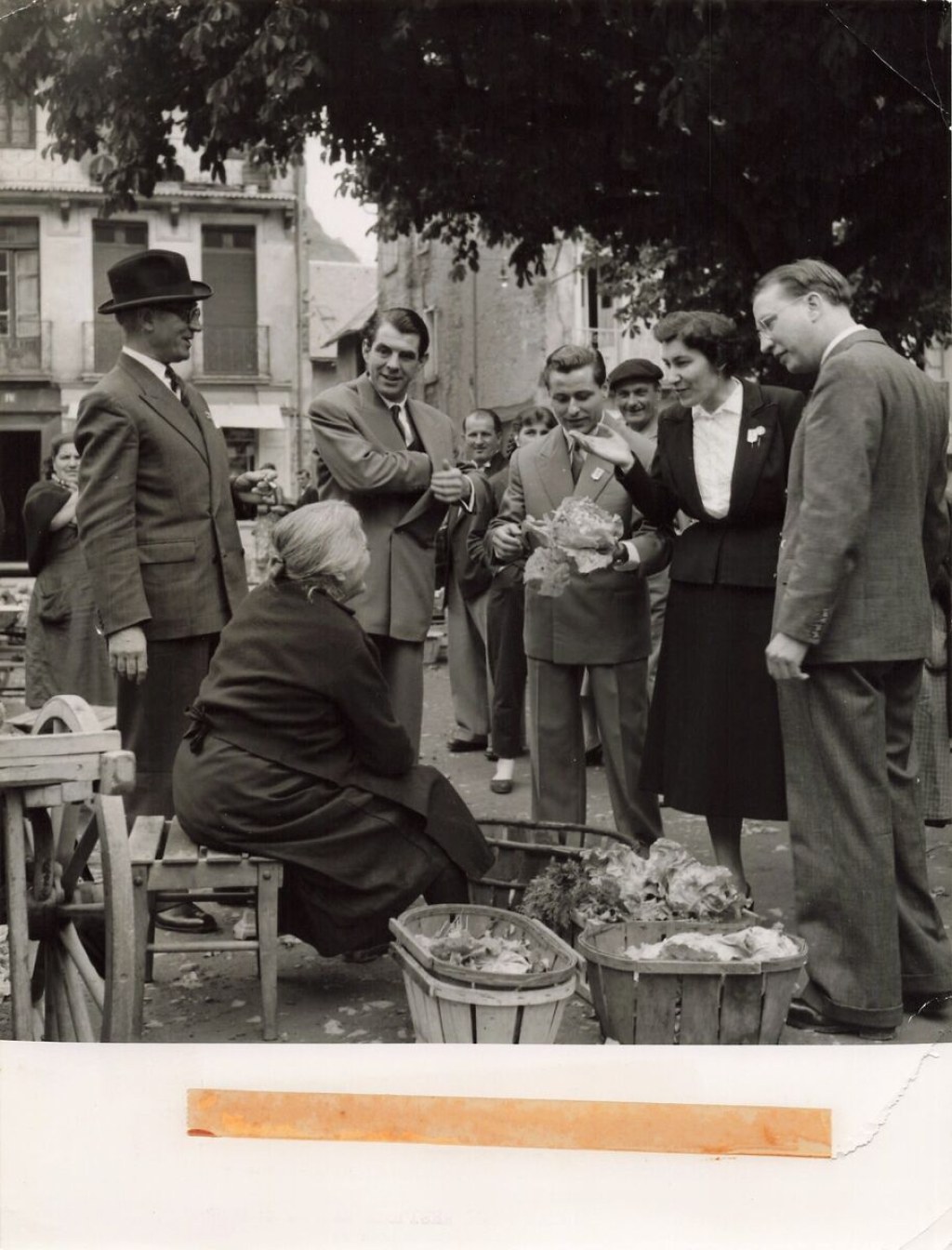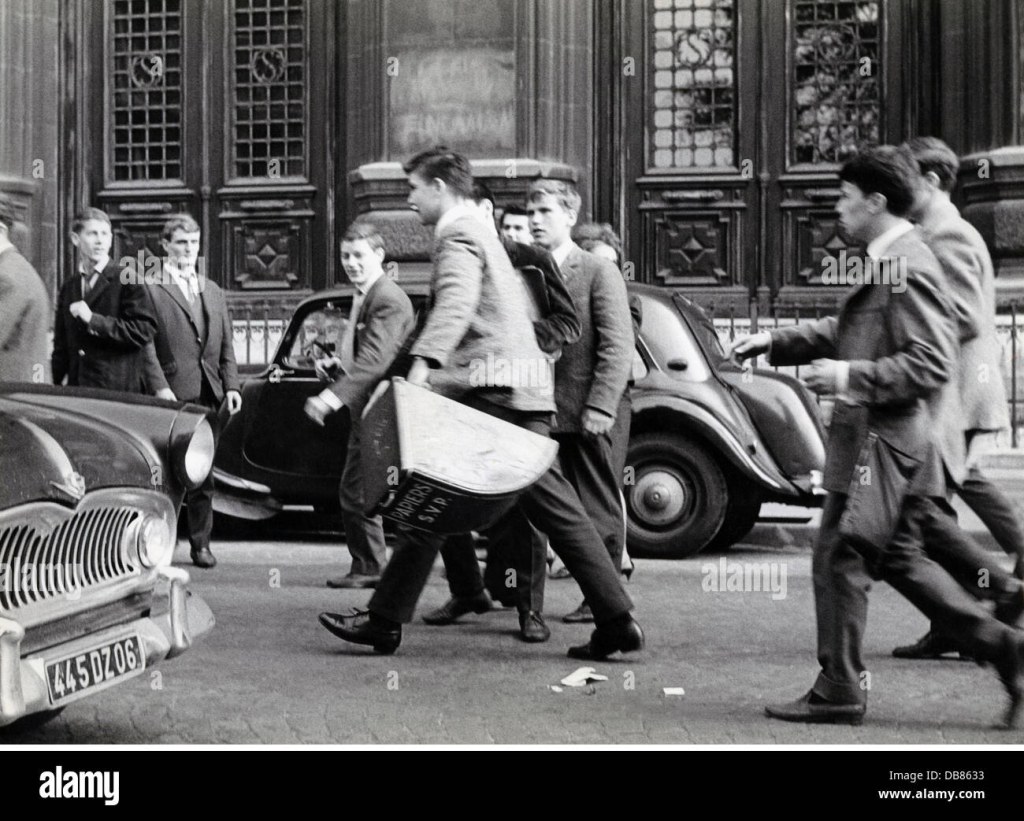France Politics in the 1950s: A Glimpse into the Past
Introduction
Hello, Readers! Today, we will take a trip back in time to the 1950s and explore the political landscape of France. The 1950s marked an interesting era for France, as the country faced numerous challenges and underwent significant changes. In this article, we will delve into the key events, influential figures, and important policies that shaped France’s politics during this period. So, buckle up and let’s embark on this historical journey together!
What were the Political Dynamics of France in the 1950s?
🔍 The political dynamics of France in the 1950s were characterized by a tug-of-war between various political parties and ideologies. The two major parties, the French Communist Party (PCF) and the French Section of the Workers’ International (SFIO), held considerable influence during this period. However, other political groups, such as the Gaullists and the Radical Party, also played significant roles in shaping France’s political landscape.

Image Source: ebayimg.com
🔍 The political scene was further complicated by the Algerian War, which began in 1954 and lasted until 1962. This conflict had a profound impact on France’s domestic politics, as it led to divisions within the government and society. Additionally, the war fueled debates regarding colonialism, nationalism, and the future of France’s overseas territories.
🔍 The 1950s also witnessed the beginnings of European integration efforts, with France being one of the founding members of the European Coal and Steel Community (ECSC) in 1951. This marked a significant step towards the establishment of the European Union and had implications for France’s political and economic relations with its European neighbors.
🔍 Furthermore, the 1950s saw the rise of specific political figures who left an indelible mark on France’s politics. Figures like Charles de Gaulle, Pierre Mendès France, and François Mitterrand emerged as key players, each with their own distinct political ideologies and visions for the country.

Image Source: alamy.com
🔍 Overall, the political dynamics of France in the 1950s were shaped by a complex interplay of domestic and international factors, making it a fascinating period to explore.
Who were the Influential Figures in France Politics during the 1950s?
🔍 Several influential figures left their mark on France’s politics during the 1950s. One of the most prominent figures was Charles de Gaulle, who played a pivotal role in French politics as the leader of the Gaullist movement. De Gaulle’s vision of a strong and independent France resonated with many, and he served as the President of France from 1959 to 1969.
🔍 Another influential figure was Pierre Mendès France, a member of the Radical Party who served as the Prime Minister of France from 1954 to 1955. Mendès France advocated for economic and political reforms, including the negotiation of peace in the Indochina War and the development of a more liberal economy.
🔍 François Mitterrand, a key figure in France’s political scene during the 1950s, was a member of the SFIO. Mitterrand later became the President of France from 1981 to 1995 and played a crucial role in shaping France’s socialist policies and fostering European integration.
🔍 These influential figures, along with many others, navigated the complex political landscape of the 1950s, leaving a lasting impact on France’s politics.
When Did France Experience Political Changes in the 1950s?
🔍 The 1950s were a time of significant political changes for France. One of the notable events was the Fourth Republic’s establishment in 1946, which experienced a series of political crises throughout the decade. These crises ultimately led to the fall of the Fourth Republic and the establishment of the Fifth Republic in 1958.
🔍 The Algerian War, which began in 1954, also played a crucial role in shaping France’s political landscape during this period. The conflict fueled debates about colonialism, national identity, and the future of France’s overseas territories.
🔍 Additionally, the 1950s marked the start of European integration efforts, with France playing a key role in the establishment of the ECSC in 1951. This marked a significant shift in France’s political and economic relations with its European neighbors.
🔍 Overall, the 1950s were a decade of political turbulence and transformation for France, with significant changes occurring both domestically and internationally.
Where Did France’s Political Events of the 1950s Take Place?
🔍 France’s political events in the 1950s took place both within the country and on the international stage. Domestically, political debates and clashes occurred in the French Parliament, where different parties and factions vied for power and influence.
🔍 The Algerian War was a significant event that unfolded both in Algeria and in France. The conflict had far-reaching implications for France’s politics, society, and relationship with its overseas territories.
🔍 On the international front, France’s involvement in the establishment of the ECSC signaled its commitment to European integration. This initiative laid the groundwork for the future development of the European Union and had a profound impact on France’s political and economic relations with its European neighbors.
🔍 In summary, the political events of the 1950s in France took place within the country’s borders, as well as in its overseas territories and on the international stage.
Why were the Political Changes in France during the 1950s Significant?
🔍 The political changes in France during the 1950s were significant for several reasons. Firstly, they marked a shift in French politics from the instability of the Fourth Republic to the establishment of the more stable Fifth Republic. This change laid the foundation for the political system that is still in place today.
🔍 The Algerian War had a profound impact on France’s politics, society, and national identity. The conflict sparked debates about colonialism, nationalism, and the future of France’s overseas territories, ultimately leading to significant policy changes and societal shifts.
🔍 France’s involvement in European integration efforts during the 1950s signaled the country’s commitment to fostering closer ties with its European neighbors. This decision had long-term implications for France’s political, economic, and social relations within Europe and beyond.
🔍 Additionally, the influential figures who emerged during this period, such as Charles de Gaulle and Pierre Mendès France, shaped France’s politics and policies, leaving a lasting legacy that continues to influence the country to this day.
🔍 In summary, the political changes in France during the 1950s were significant due to their impact on the country’s political system, society, and international relations.
How did France Navigate the Political Challenges of the 1950s?
🔍 France navigated the political challenges of the 1950s through a combination of diplomatic negotiations, policy reforms, and societal dialogues. Political leaders like Charles de Gaulle and Pierre Mendès France sought to address the issues of the time through their respective ideologies and policies.
🔍 In the case of the Algerian War, France attempted to find a solution through a combination of military action and political negotiations. However, the conflict proved to be a deeply divisive issue, leading to protests, social unrest, and political tensions within the country.
🔍 France’s involvement in European integration efforts during the 1950s reflected a desire to foster closer ties with its European neighbors. This commitment required political negotiations, compromises, and the establishment of common policies to facilitate cooperation and integration.
🔍 Overall, France navigated the political challenges of the 1950s through a combination of assertive leadership, policy reforms, and diplomatic efforts to address both domestic and international concerns.
Advantages and Disadvantages of France Politics in the 1950s
🔍 Advantages:
1. ➕ Increased political stability with the establishment of the Fifth Republic.
2. ➕ Fostering closer ties with European neighbors through European integration efforts.
3. ➕ The rise of influential figures who left a lasting impact on France’s politics.
🔍 Disadvantages:
1. ➖ Divisions and conflicts arising from the Algerian War.
2. ➖ Challenges in addressing the demands of various political parties and factions.
3. ➖ The need to navigate complex international relations during a time of significant global changes.
FAQs (Frequently Asked Questions) about France Politics in the 1950s
1. What were the major political parties in France during the 1950s?
The major political parties in France during the 1950s were the French Communist Party (PCF), the French Section of the Workers’ International (SFIO), the Gaullists, and the Radical Party.
2. How did the Algerian War impact France’s politics?
The Algerian War had a profound impact on France’s politics, as it sparked debates about colonialism, nationalism, and the future of France’s overseas territories. The conflict also led to divisions within the government and society.
3. Who were some influential figures in France’s politics during the 1950s?
Some influential figures in France’s politics during the 1950s were Charles de Gaulle, Pierre Mendès France, and François Mitterrand.
4. What were the advantages of France’s involvement in European integration efforts during the 1950s?
The advantages of France’s involvement in European integration efforts included fostering closer ties with European neighbors, increased economic cooperation, and the establishment of common policies to address shared challenges.
5. How did France navigate the political challenges of the 1950s?
France navigated the political challenges of the 1950s through diplomatic negotiations, policy reforms, and societal dialogues. Political leaders implemented various strategies to address the issues of the time.
Conclusion: Reflecting on France Politics in the 1950s
In conclusion, the politics of France in the 1950s were characterized by complex dynamics, significant changes, and influential figures. The era witnessed political shifts, both domestically and internationally, that continue to shape France’s political landscape today. From the establishment of the Fifth Republic to the Algerian War and the country’s involvement in European integration efforts, the 1950s marked a crucial period in France’s history. As we reflect on this era, let us remember the lessons learned and the challenges overcome. May the past guide us towards a brighter future for France and its politics.
Final Remarks: Exploring the Past for a Better Future
As we delve into the history of France politics in the 1950s, it is essential to remember that understanding the past is crucial for shaping a better future. By examining the political events, influential figures, and policy changes of this era, we gain valuable insights that can guide us in making informed decisions in the present. Let us learn from the successes and failures of the past as we work towards building a more prosperous and inclusive society. Together, we can create a future that honors the legacy of those who came before us and paves the way for generations to come. Friends, let us embark on this journey of exploration and discovery, hand in hand.